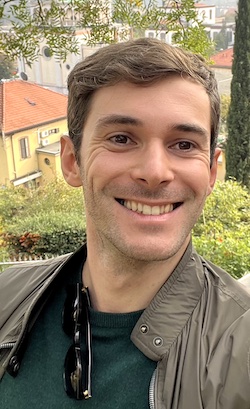This seminar will take place on November 24 at 15:00, online via Zoom (link below)
https://videoconf-colibri.zoom.us/j/99227345117?pwd=aXYwVHRwWEdPWE5HejZsQlliOGphQT09
Our seminars are free to attend and open to everyone. Please share with whomever may be interested.

Summary
In recent years, the importance of sustainable waste management processes has been recognized worldwide. Traditionally, waste collection is based on static and pre-defined routes, regularly performed regardless of bins' fill levels. However, uncertainties may corrupt the collection in several aspects. Motivated by the uncertain nature of the waste accumulation, we formulate a multi-stage stochastic optimization model for an inventory routing problem applied to recyclable waste collection. We treat with uncertainties in the form of a scenario tree, whose information structure is generated via conditional density estimation and dynamic stochastic approximation techniques. The scenario generation method is validated by means of an in-sample stability, with respect to the number of scenarios. Given the computational complexity of the model, we propose the rolling horizon approach as heuristic methodology to tackle the problem, and we prove a worst-case analysis on its performance. Extensive computational experiments are carried out on small instances based on real data provided by a large Portuguese waste collection company. The impact of stochasticity on waste generation is examined through stochastic measures. The performances of the rolling horizon approach are evaluated, both in terms of optimal objective value and CPU time computation. The effectiveness of the proposed methodology is finally tested on large-size real case studies and managerial insights are provided. This is a joint work with Profs. Francesca Maggioni (UNIBG), Tânia Ramos (CEGIST), Ana Barbosa-Póvoa (CEGIST), Daniele Vigo (UNIBO).
Speaker's bio
Andrea Spinelli is currently a PhD candidate in Applied Economics and Management in a joint PhD program between University of Pavia and University of Bergamo (Italy), under the supervision of Prof. Francesca Maggioni. His main research interests are devoted to optimization under uncertainty, with applications to machine learning and routing problems. He earned his MSc in Mathematics at University of Milan (Italy), after a research period at Paris-Sud University (France). In 2022 he has been visiting PhD student at University of Lisbon, Instituto Superior Técnico (Portugal), under the supervision of Profs. Ana Póvoa and Tânia Ramos. Since 2017, he collaborates with the School of Engineering of University of Bergamo, where he is currently teaching assistant for the courses of Operations Research and Mathematical Analysis.
Personal homepage: https://www.andrea-spinelli.it
